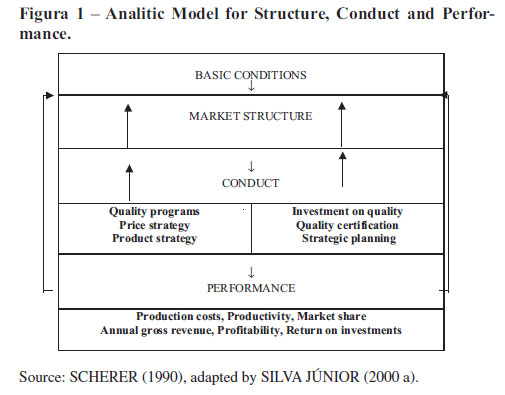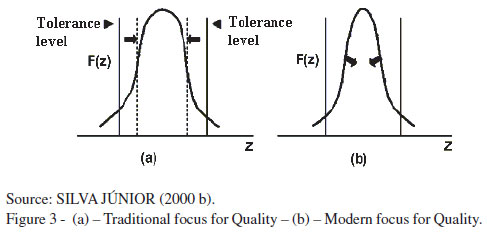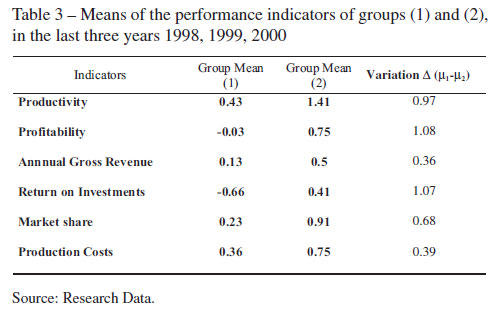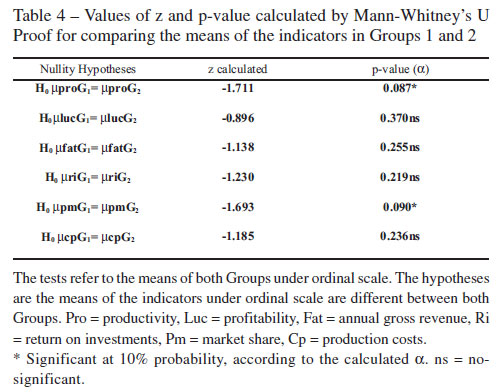By means of the Structure-Conduct-Performance model and the Quality Theory, this study was carried out to verify the influence of the quality programs on the performance indicators of the coffee roasting and milling industry on Southeastern Brazil. The results pointed out an improvement in the majority of the studied indicators as the implantation of the quality programs were advanced.. The Wilcoxon's no-parametric statistical test was used for comparison among the means of the indicators, which were obtained during implantation of the programs and when the research was conducted. The test revealed that market share and returns on investments were statistically significant indicators, that is, they were improved as the quality programs were implemented. Also The Mann-Whitney no-parametric test was also used, for comparing the means among the indicators of both Groups. The test showed no statistical differences among the means of the Groups. According to the results, the following conclusions were drawn: the quality programs promoted the desired effect on those indicators of performance, on absolute terms; in spite of the quality programs being used by just a restrict number of coffee roasting industries, they were efficient in improving the indicators, so showing to be a viable competitive strategy for the coffee roasting sector
Quality programs; performance indicators; no-parametric tests; coffee industry








